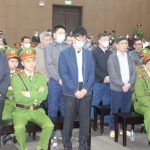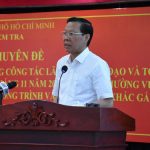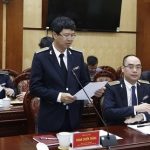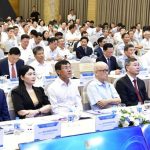During the workshop, “State Audit – 30 years of construction and development,” held on July 3 in Hanoi, delegates presented and discussed the topic, “State Audit: Today’s Impressions, Expectations, and Future Orientations to Meet Renewal Requirements.” They shared their aspirations for the State Audit of Vietnam (SAV) in the coming years.
Speaking at the workshop from the local perspective, Mr. Nguyen Van Thi, Vice Chairman of the People’s Committee of Thanh Hoa Province, emphasized his high appreciation for the coordination between SAV and local authorities, as well as the audit recommendations. He expressed the local authorities’ desire to have audits conducted as early as possible.
Mr. Thi shared the province’s wishes: First, they hope that SAV will continue to pay attention and advise the Government and the National Assembly so that central agencies can issue more practical mechanisms and policies. Second, they wish for SAV’s continued attention and coordination with the province to help control the local budget, public investment projects, and public assets. They also hope for more training courses for local departments and sectors on complex areas such as land, public assets, the environment, and minerals. Regarding audit recommendations that are difficult to implement due to objective factors, they request SAV’s attention and resolution to prevent prolongation.
Representing Cao Bang Province, Mr. Hoang Xuan Anh, Vice Secretary of the Provincial Party Committee and Chairman of the People’s Committee, shared that over time, the frequency of audits has not increased, but the scope has expanded with the integration of in-depth topics relevant to the province’s reality. Many audits have delved into assessing the economy and effectiveness in managing and utilizing public finances and assets, providing practical advice for socio-economic development in the province.
Notably, the audit results go beyond mere figures of increased revenue and budget savings for the state budget. More importantly, the audits help audited units improve their limitations in budget management and investment project administration, refining their control systems.
The province looks forward to receiving more attention, coordination, and support from SAV, especially from the SAV Region X.
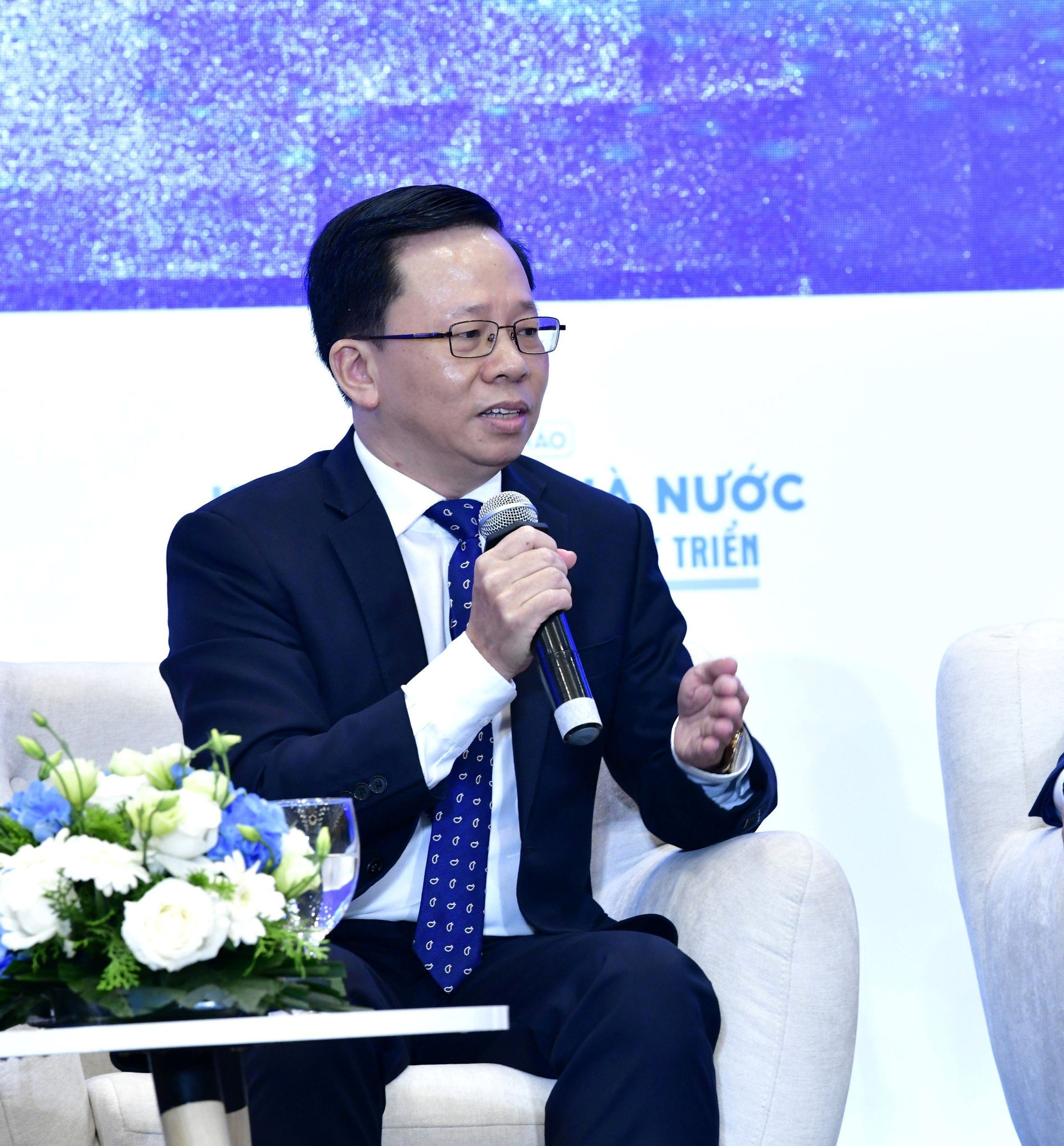
Mr. Le Minh Nam, Standing Member of the National Assembly’s Finance and Budget Committee. Photo: BTC
From the perspective of the National Assembly’s agency, Mr. Le Minh Nam, Standing Member of the Finance and Budget Committee, made the following proposals: First, SAV should submit to the competent authority for permission to amend and supplement the provisions of the Law on State Audit, issue resolutions, and provide information, documents, and reports as required. The Finance and Budget Committee will coordinate in reviewing SAV’s proposals and report to the Standing Committee of the National Assembly to help SAV improve its legal basis to better perform its functions and tasks.
Accordingly, it is proposed that SAV pay special attention to suggesting supplements to the conditions and authority to perform the task of auditing anti-corruption in accordance with the Law on State Audit; strengthening the responsibility of related parties in implementing audit conclusions and recommendations; and clarifying the procedures and authority to handle unresolved issues in the recommendations. Additionally, SAV should suggest conditions regarding legal basis, organization, and resources to adapt to the changing management environment and audit subjects in the era of Industry 4.0.
Second, based on practical audit results and the demands of management tasks, SAV needs to be more proactive in providing information, documents, and proposing key issues related to perfecting policies and laws on managing public finances and assets, enhancing the management of the country’s resources, and proactively completing, amending, and supplementing policies and solutions. In collaboration with the Finance and Budget Committee, SAV can report to the competent authority to select appropriate solutions and proactively handle issues from an early stage, preventing risks, losses, and waste of state, business, and social resources. In this regard, SAV needs to be more proactive in coordinating with the Finance and Budget Committee, leveraging its capabilities and strengths through the exploitation of audit results.
Highlighting the crucial role of SAV as a specialized agency in inspecting the country’s finances and public assets, Mr. Nguyen Ngoc Canh, Vice Chairman of the State Capital Management Committee, expressed his desire to continue receiving practical and effective recommendations from SAV to improve the management of state capital and assets.
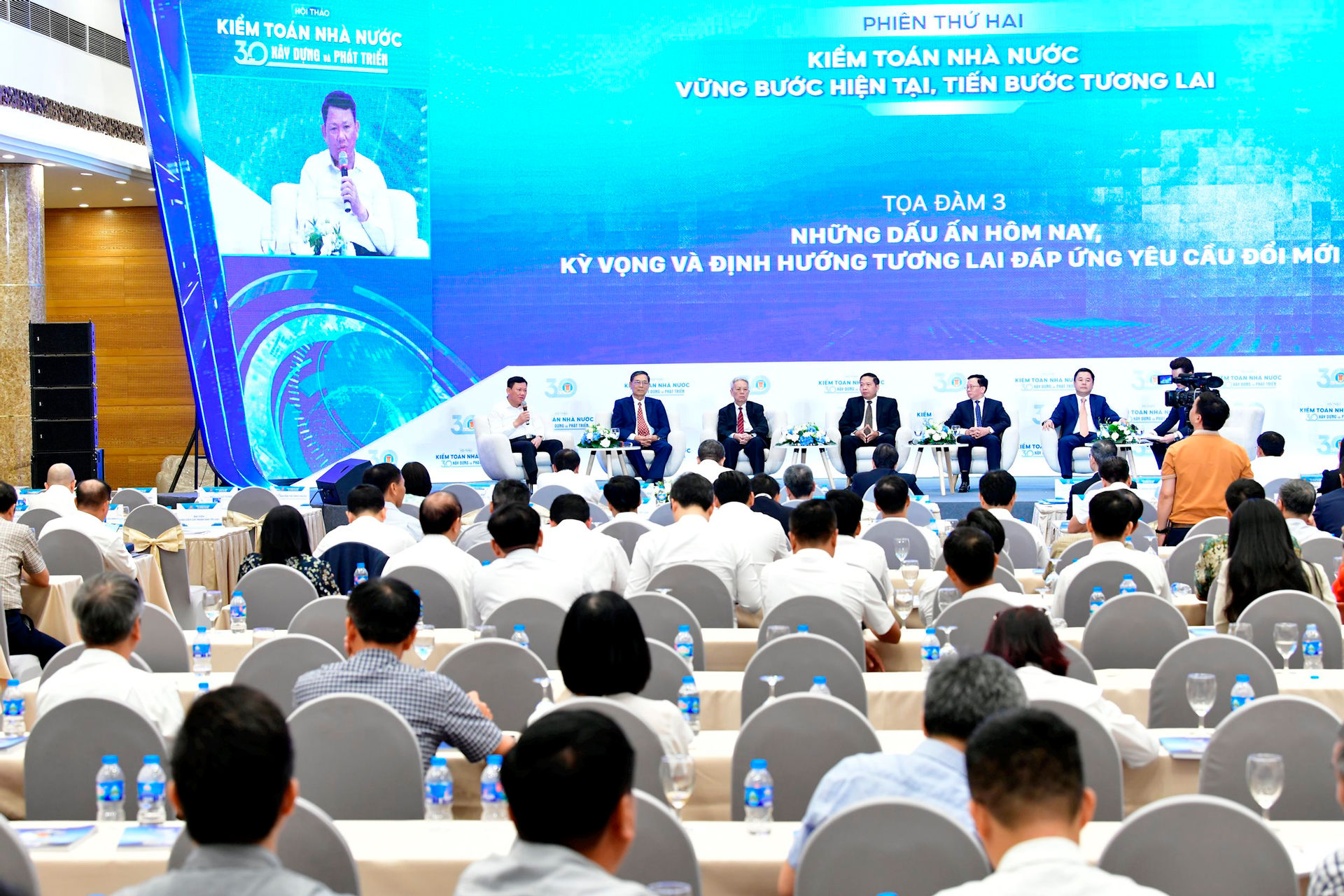
Discussion Panel. Photo: BTC
Along with the wishes to perfect the legal provisions related to SAV, former Deputy State Auditor Dang The Vinh expressed that, in the immediate future, it is necessary to focus on overcoming difficulties and obstacles in audit activities. For example, to meet the requirements of the anti-corruption and anti-wastefulness efforts, it is essential to supplement some provisions for SAV, such as auditing economic responsibility, investigative auditing, and granting authority to prevent the dissipation of assets in cases where SAV detects signs of corruption, negativity, or wastefulness.
Additionally, it is necessary to supplement provisions on time limits and validity periods in audit activities, such as the period after which there can be no complaints or lawsuits, or the authority of the State Auditor General in cases where audit conclusions and recommendations are no longer feasible. Furthermore, in the era of the 4th Industrial Revolution, it is crucial to add provisions related to the responsibility of audited units in providing electronic data, as well as the integration, connection, and exchange of electronic data between SAV and audited units, laying the foundation for the transition from traditional audit methods to data-driven audits.
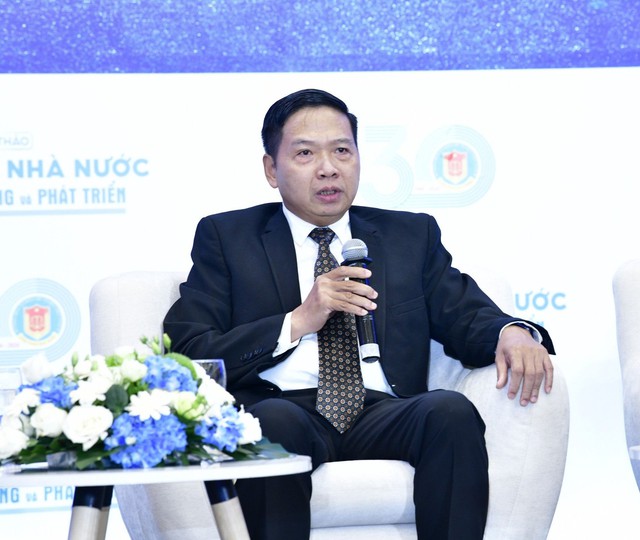
Former Deputy State Auditor Dang The Vinh suggested focusing on overcoming difficulties and obstacles in audit activities. Photo: BTC
Particularly, as per the direction of the State Auditor General, there is a need to continue improving the system of audit standards, procedures, and files. In the immediate future, it is crucial to review and supplement the regulations according to the Regulation No. 131-QD/TW dated October 27, 2023, of the Politburo on controlling power and preventing corruption, negativity, and wastefulness in inspection, supervision, discipline, and auditing work; and to build a joint circular regulating the coordination between the Investigation Agency, the Procuracy, and SAV in exchanging information about crimes and handling the proposal for prosecution discovered through audit activities.
Government Inspector: Dealing with corruption with the spirit of “no escape”
From 2021 until now, the work of detecting, prosecuting, investigating, and handling corruption cases has seen new developments in uncovering the nature, motive, and misappropriation of assets with the intertwining of the state and non-state sectors.
Remove bottlenecks in implementing audit recommendations
In recent years, the State Audit Office (SAO) has always been concerned with the monitoring, testing, and urging the implementation of audit conclusions and recommendations. However, despite the efforts of many ministries, sectors, localities, and units to implement audit conclusions and recommendations, there are still many that have not been implemented. In fact, many audit recommendations have been left hanging for years with billions of dong still outstanding, and there are many bottlenecks in mechanisms and policies that have not been resolved.
Audit Announcement for 18 Entities in Thanh Hoa Province
The State Audit Office will conduct audits on 18 units in Thanh Hoa province regarding issues such as the use of land use fee revenue, compliance with legal regulations in the management and leasing of public land, and timely detection of misconduct and corrupt practices.
Enhancing Government Effectiveness, Efficiency, and Transparency in Budget Utilization
As the supreme audit institution, the State Audit Office of Vietnam (SAV) has proven its mettle as an independent and law-abiding entity. The SAV has effectively played its role in supporting the development of local governments and businesses alike, as well as facilitating the National Assembly’s crucial decisions and oversight functions. The organization takes pride in its significant contributions to the nation’s socio-economic progress, always striving for maximum efficiency.

